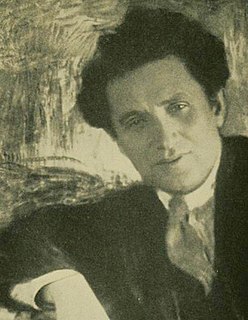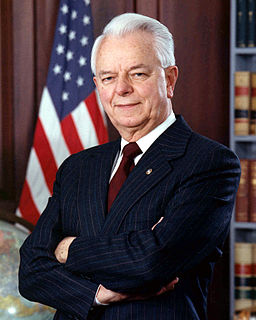A Quote by Robert E. Lee
We must forgive our enemies. I can truly say that not a day has passed since the war began that I have not prayed for them.
Related Quotes
They say that when god was in Jerusalem he forgave his murderers, but now he will not forgive an honest man for differing with him on the subject of the Trinity. They say that God says to me, "Forgive your enemies." I say, "I do;" but he says, "I will damn mine." God should be consistent. If he wants me to forgive my enemies he should forgive his. I am asked to forgive enemies who can hurt me. God is only asked to forgive enemies who cannot hurt him. He certainly ought to be as generous as he asks us to be.
Even as the angry vengeful thoughts boiled through me, I saw the sin of them. Jesus Christ had died for this man; was I going to ask for more? Lord Jesus, I prayed, forgive me and help me to forgive him....Jesus, I cannot forgive him. Give me your forgiveness....And so I discovered that it is not on our forgiveness any more than on our goodness that the world's healing hinges, but on His. When He tells us to love our enemies, He gives along with the command, the love itself.
"If a man finds it very hard to forgive injuries, let him look at a Crucifix, and think that Christ shed all His Blood for him, and not only forgave His enemies, but even prayed His Heavenly Father to forgive them also. Let him remember that when he says the Pater Noster, every day, instead of asking pardon for his sins, he is calling down vengeance on himself."
Christ prayed for those that crucified Him: 'Father, count not this sin against them; they know not what they do.' Archdeacon Stephen prayed for those who stoned him so that the Lord would not judge this sin against them. And so we, if we wish to retain grace, must pray for our enemies. If you do not find pity on a sinner who will suffer in flames, then you do not carry the grace of the Holy Spirit, but rather an evil spirit; and while you yet live, you must free yourself from his clutches through repentance.
I prayed for Faith, and thought that some day Faith would come down and strike me like lightning. But Faith did not seem to come. One day I read in the tenth chapter of Romans, 'Now Faith cometh by hearing, and hearing by the Word of God'. I had closed my Bible, and prayed for Faith. I now opened my Bible, and began to study, and Faith has been growing ever since.
Forgiveness is a strange thing. It can sometimes be easier to forgive our enemies than our friends. It can be hardest of all to forgive people we love. Like all of life's important coping skills, the ability to forgive and the capacity to let go of resentments most likely take root very early in our lives.
Before making peace, war is necessary, and that war must be made with our self. Our worst enemy is our self: our faults, our weaknesses, our limitations. And our mind is such a traitor! What does it? It covers our faults even from our own eyes, and points out to us the reason for all our difficulties: others! So it constantly deludes us, keeping us unaware of the real enemy, and pushes us towards those others to fight them, showing them to us as our enemies.
You must forgive everyone. Now many would say that "We cannot forgive, it's very difficult." But it's a myth whether you forgive or don't forgive. What do you do? You don't do anything. But when you don't forgive, then you are playing into wrong hands. That means you are torturing yourself, while those who have troubled you are quite happy.
To engage in war is always to pick a wild card. And war must always be a last resort, not a first choice. I truly must question the judgment of any president who can say that a massive unprovoked military attack on a nation which is over 50 percent children is ‘in the highest moral traditions of our country.'
There is a saying that to understand is to forgive, but that is an error, so Papa used to say. You must forgive in order to understand. Until you forgive, you defend yourself against the possibility of understanding. ... If you forgive, he would say, you may indeed still not understand, but you will be ready to understand, and that is the posture of grace.
As we have sought through the centuries to define ourselves as human beings and as nations through the prisms of history and literature, no small part of that effort has drawn us to the subject of war. We might even say that the humanities began with war and from war, and have remained entwined with it ever since.




































